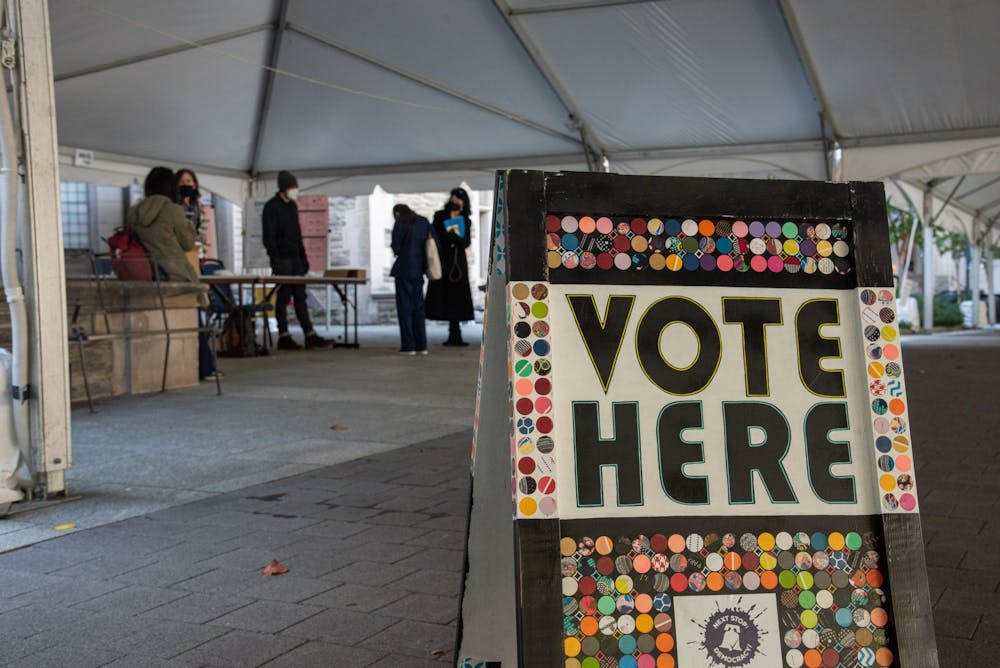Next Tuesday, voters in Philadelphia and across the state will head to the polls to cast their votes in the 2021 elections. A variety of positions are up for re-election: district attorney and city controller for Philadelphia alone.
Among the plethora of elections is a series that may go unnoticed: judicial elections. In years past, turnout for such elections has been around 20%, less than one-third of the turnout in Pennsylvania for Presidential elections. Local elections, despite receiving little attention, play an enormous role in shaping people’s lives. As such, Penn students must vote for court seats up for election, as the judges elected will play an important role in shaping state law for years to come.
Perhaps the most notable seat up for grabs is one on the Pennsylvania Supreme Court, the highest state court. With Republican Justice Thomas Saylor retiring in December, Democrats could hold a 6-1 advantage if Superior Court judge Maria McLaughlin prevails. On the other hand, a victory by Republican Kevin Brobson would maintain the partisan status quo.
The Pennsylvania Supreme Court has dealt with a number of controversial cases in recent years. In 2018, it struck down a House of Representatives map widely perceived to unfairly favor Republicans, giving them a 13-5 advantage. As a result, Democrats gained several seats in the subsequent midterm elections, contributing to their takeover over the House of Representatives.
The gerrymandering case is not an isolated trend. More recently, the court has also upheld the COVID-19 disaster declaration, a victory for Democratic Gov. Tom Wolf, and has permitted changes to voting laws for the 2020 election due to the COVID-19 pandemic. The lesson here is simple: the Pennsylvania Supreme Court not only affects how the law is interpreted, but also state and national politics. If you care about them, you ought to care about the courts.
It’s not just the Pennsylvania Supreme Court that matters, however. The Superior Court of Pennsylvania, the Commonwealth Court, the Court of Common Pleas, and the Philadelphia Municipal Court all have elections for one or more judges this year. Each of these courts has real procedural power. The Superior Court, for example, handles over 8,000 cases on an annual basis, and it often proves to be the final word on legal questions. The Superior Court aided the push for extending the statute of limitations on Catholic priests. Moreover, the Pennsylvania Commonwealth Court, with a heavily Republican tilt, gave President Trump several legal victories when he sought to overturn the results of the 2020 elections.
The past five years have seen two contentious presidential races, historic midterms, and countless local elections. Penn students would be forgiven for having election fatigue and for wanting to take a few races off. This, however, is not a good choice. For the sake of Pennsylvania, and for the sake of its citizens, Penn students must vote in the upcoming judicial elections.
Editorials represent the majority view of members of The Daily Pennsylvanian, Inc. Editorial Board, which meets regularly to discuss issues relevant to Penn's campus. Participants in these meetings are not involved in the reporting of articles on related topics.
SEE MORE FROM THE DAILY PENNSYLVANIAN EDITORIAL BOARD:









